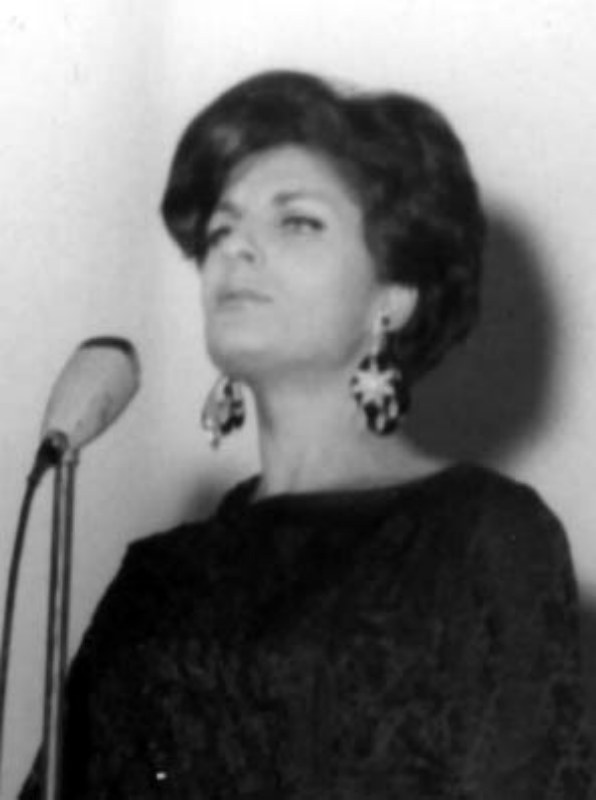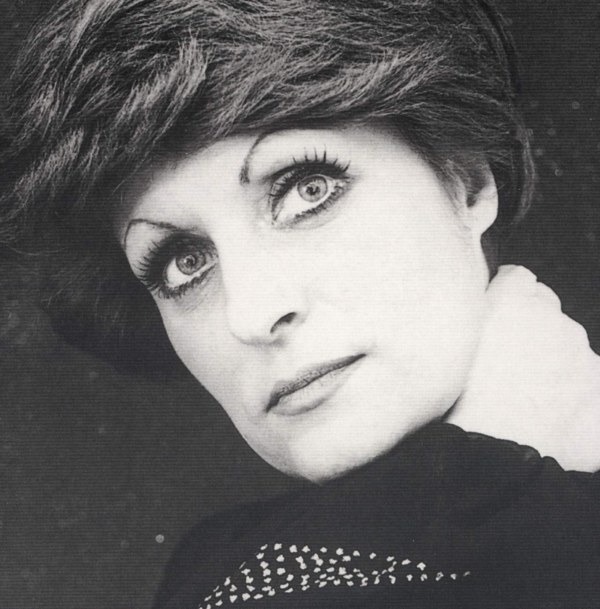Know more:
Lídia Ribeiro
(N. 21 September, 1934)Lídia Ribeiro claims she may have begun singing by influence of her friends and colleagues who encouraged to compete in "À procura de uma estrela", a show by Igrejas Caeiro, composed by several trials, representing, for example, the different neighbourhoods of Lisbon, and with many categories (opera, fado, song). Lídia Ribeiro wins in the category Fado and the prize is a contract to join the cast of "Companheiros da Alegria", a show that accompanies "Portugal Cycling Tour ".
She wins a Menção Honrosa from Emissora Nacional and performs four times in "Serões para Trabalhadores" .
She becomes a professional at 18 years old and gets married to Luís Guilherme at 19, leaving to Brazil with their daughter. It is there that her career “jumps” due to several performances at TV shows, TV Record, and the radio, and the recording of her first LP, with the label Copacabana, all very positive experiences, according to her: “I adapted really well to TV and they liked me because I looked very nice on film!”
During her stay in Brazil she mingled with some musical references, such as Tristão da Silva, Francisco José, Tony de Matos irmãs Meireles, António Mestre (accordion player), and they performed at some variety shows broadcast by the Brazilian radio and TV.
After about 5 years they return to Portugal and after being chosen "Eleita da Quinzena", she is invited to join the cast of the restaurant "Folclore", at Cervejaria Trindade, which Lídia Ribeiro described as "a Lisbon living room when someone came to dinner", and where she performed for 13 years. Besides the nearly daily performances, the cast toured through Europe, Brazil and Africa every January.
After "Folclore" closed, she began a "circuit" through seeveral Casinos in Portugal, where she enjoyed performing. Lídia admits to enjoy big stages, spotlights and microphones. “A show is light, sound, beautiful clothes, that is a show to me."
Meanwhile, she splits from her husband and becomes a couple with Tony de Matos.
The 25 April revolution was accompanied by a decreasing audience in Casinos, and so Lídia Ribeiro feels the need to give a new direction to her artistic career. Encouraged by Tony de Matos she performs at the fado house "Fado Menor", and at other houses for shorter periods of time. Later she joins the cast of "Faia" for three years and then "Taverna D´El Rei", where she also stayed for three years. Lídia says it was an "adjustment to fado houses".
In her pathway she recorded with the labels "Copacabana" (Brazil), Belter (Spain), Valentim de Carvalho and Alvorada; special reference should be made to the hits "À janela do meu peito", "Lisboa Menina" by Alberto Janes and "Agora é tarde", by Pinto Ribeiro.
At 65 years old she ends her career, giving away her wardrobe and her shoes, and retires: “...I do not regret not singing anymore, I think I did it at the right time…” told us Lídia Ribeiro.

Manuel Fernandes, Deolinda Rodrigues, Lídia Ribeiro Madeira, 1960

Lídia Ribeiro, s/d.

Lídia Ribeiro, s/d.
-
Agora é Tarde Lídia Ribeiro (Pinto Varela / Jorge Fontes)